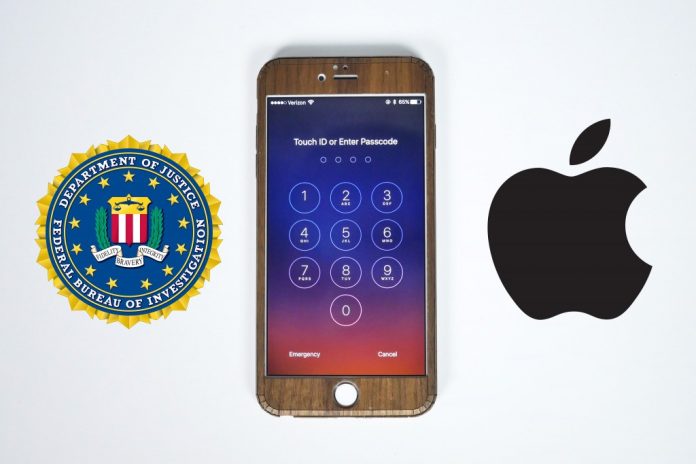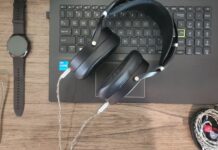Many Americans may sadly be desensitized to mass shootings in the United States. This can be corroborated by the lack of surprise when the news of an additional mass shooting occurred this past December in San Bernadino, California. Ironically, the largest backlash against the handling of this shooting stems not from gun control but instead the handling of personal storage and data on devices. Two months later the public interpretation of this tragedy is not focused on the weapons utilized or even the potential “religious” factors to the incident (it is worth stating this attack does not reflect the teachings of Islam in the slightest degree). This was a cruel attack potentially “justified” by extreme interpretations of Islamic scripture – i.e ISIS.
 Instead, the majority of the public uproar is revolving around the handling of a single iPhone, in this case the personal cellular device of one of the attacks perpetrators, Syed Rizwan Farook. This began when a US federal magistrate ordered Apple to help the FBI unlock the now deceased Syed’s iPhone. This was ultimately the result of the FBI’s inability to unlock the phone. FBI director, James Comey pointed out that federal agents have been unable to unlock the phone which could potentially shed light on the extent of influence on the two perpetrators by radical Islamic terrorist groups. The difficulty to unlock Syed’s iPhone can be traced to the encryption software that Apple began to support on their phones back in 2014.
Instead, the majority of the public uproar is revolving around the handling of a single iPhone, in this case the personal cellular device of one of the attacks perpetrators, Syed Rizwan Farook. This began when a US federal magistrate ordered Apple to help the FBI unlock the now deceased Syed’s iPhone. This was ultimately the result of the FBI’s inability to unlock the phone. FBI director, James Comey pointed out that federal agents have been unable to unlock the phone which could potentially shed light on the extent of influence on the two perpetrators by radical Islamic terrorist groups. The difficulty to unlock Syed’s iPhone can be traced to the encryption software that Apple began to support on their phones back in 2014.
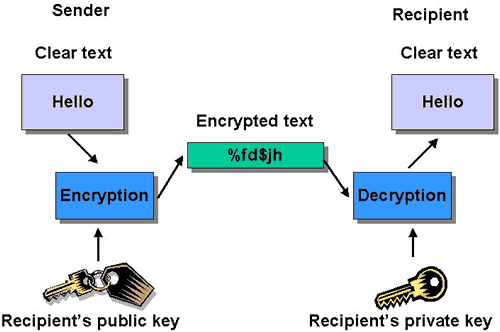
For those uninformed on encryption, it is “the conversion of electronic data into another form, called ciphertext, which cannot be easily understood by anyone except authorized parties.” Apple noted that they could not unlock the phone/software even when potentially faced with a court order. Apple had consumers’ privacy in consideration when this software was initiated. The FBI and the majority of Federal investigative agencies have been in disagreement with Apple ever since this software was implemented. The FBI argues that Apple is “obstructing justice” to a degree by not providing the Fed with a back door which would be used to bypass the encryption. This argument has been brought up multiple times which makes this specific request for access to the phone’s memory the most recent attempt by the Fed in their struggle to gain an advantage over consumers privacy. In other words, what is not only the rights of this single deceased individual but also the rights to privacy for the average American citizen are at stake.
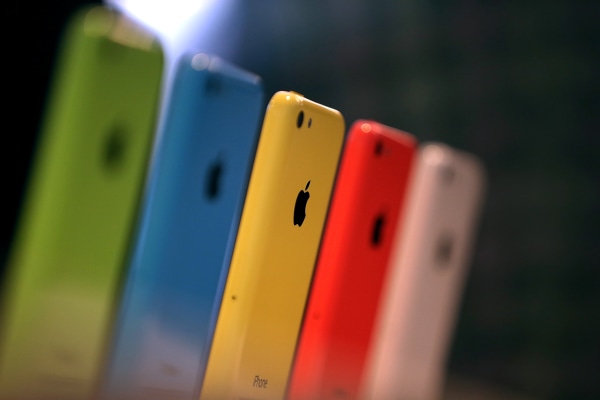
This court order from the federal judge essentially was an order for Apple to provide access to the phone as stated earlier. The point of contention is the fact that Apple “declined to provide voluntary” help to the federal investigators. The 40-page filing stated, “Despite … a warrant authorizing the search, the government has been unable to complete the search because it cannot access the iPhone’s encrypted content. Apple has the exclusive technical means which would assist the government in completing its search, but has declined to provide that assistance voluntarily.” In my opinion, the fact that the FBI is incapable of decrypting the device is either a preposterous lie, or the FBI is far more incapable than many have perceived when it comes to cyber forensics and data surveillance. Both warrant a need for distress. On one hand, the FBI does have the potential to gain access to the phone but instead seeks to have legislation written that would allow them access to all Apple devices that have this encryption software through a “back door.” This could, in turn, lead to the beginning of a slippery slope form of legislation that would potentially allow the Fed to be given “back doors” to all encrypted devices regardless of manufacturer. In other words, it would be the first step towards greater restraints on the data privacy of American citizens.

Personally, the more frightening alternative is the idea that the FBI along with every other investigative agency (I.E. – NSA, CIA, DOD Cyber Warfare Teams) lack the ability to truly unlock this device. This, of course, would be embarrassing if proven true in my opinion. The Fed prides itself that these agencies have the best minds and equipment at their disposal when it comes to retrieving information. This is substantiated by the Edward Snowden leaks regarding the NSA and its questionable forms of action and surveillance. If the Fed is unable to crack the encryption on an iPhone 5C, which is what they are claiming, shouldn’t Americans be a little more worried about threats to national security via cyber attacks? I am not claiming that the process of bypassing this encryption is easy by any means, but the Fed wants me to believe that they are giving up after about 2 months of investigation? If that is indeed the truth and the Fed isn’t attempting to infringe on American’s rights then there is a larger issue at hand. Just last week the Director of National Intelligence delivered the yearly threat assessment. He stressed that “China continues to have success in cyber espionage against the U.S. government, our allies, and U.S. companies,” Clapper emphasized. “Beijing also selectively uses cyber attacks against targets [and] its beliefs threaten Chinese domestic stability or regime legitimacy.” Potentially this whole case is supplementing the idea that the United States is increasingly vulnerable to cyber attacks. While at the same time the U.S. claimed it “planned the major cyber attack(s) on Iran if nuclear talks failed.” Yet, I continue to digress from the main point of debate, the fate of Sayed’s phones data and potential the right to American’s own personal data.
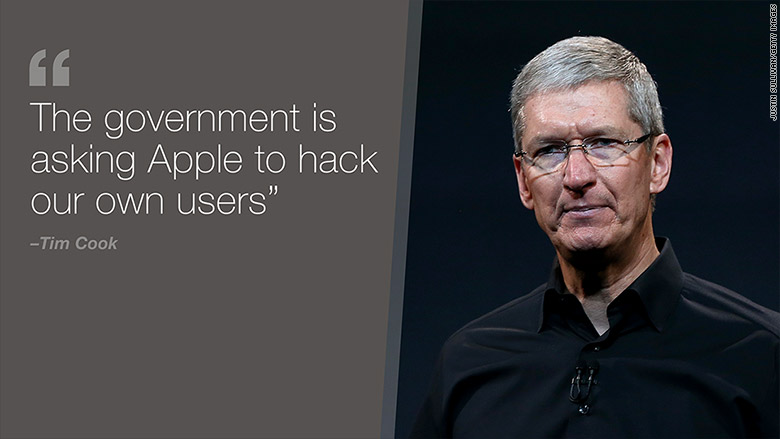
Apple is fighting back against this call for “back doors” on their user’s devices. Apple CEO Tim Cook wrote and published an open letter late this past Tuesday (2/16) “pledging to fight a judge;s ruling that it should give FBI investigators access to encrypted data on the device.” He stated, “The government is asking Apple to hack our own users and undermine decades of security advancements that protect our customers — including tens of millions of American citizens — from sophisticated hackers and cybercriminals.”
This addresses the idea that by unlocking this one device Apple would then be held responsible for unlocking additional phones if asked. Cook added “Opposing this order is not something we take lightly. We feel we must speak up in the face of what we see as an overreach by the U.S. government. We are challenging the FBI’s demands with the deepest respect for American democracy and a love of our country. We believe it would be in the best interest of everyone to step back and consider the implications.”
Some have criticized Apple for taking this approach to handling the investigation including Donald Trump who said he “would ‘force’ Apple to hack” the iPhone. From an outside and ill-informed perspective, this may seem as if Apple is working against the Fed. Google’s chief executive, Sundar Pichai stated that Apple by “helping the FBI try to get into the phone used by Syed Rizwan Farook would sabotage the security of tens of millions of American citizens.” Opinions echoing this view towards the case and investigation were also expressed by executive members of Twitter and Facebook. The tech and online information community as a whole have somewhat agreed that unwanted consequences would result if Apple provided this “back door.”
Cook pointed directly at the same point I made earlier about additional legislation regarding surveillance. He “suggested that the government could use the same legislation cited in Tuesday’s ruling to demand that tech companies build surveillance software to intercept customers’ messages. ” This potential domino effect of evasive legislation against Americans could entail lasting negative aspects on the average innocent American’s everyday life. Simply put “the implications of the government’s demands are chilling.” Cook like every other individual that sees the negative potential of these “back doors” is somewhat afraid of the results. Lastly, Tim Cook attempted to explain the overall idea of the situation in more simple terms. “Once created, the technique could be used over and over again, on any number of devices,” Cook said. “In the physical world, it would be the equivalent of a master key, capable of opening hundreds of millions of locks — from restaurants and banks to stores and homes. No reasonable person would find that acceptable.”

I personally am not afraid of any of my personal data or private communications going public or be monitored by the Fed. I express my opinions and will gladly answer or be the victim of the repercussions that mindset may entail. In other words, I have nothing to hide. Essentially, I am not ashamed of anything I have said in the past. This doesn’t necessarily mean that everything I discuss online is without a bias or negative tone/implication, but I am not one to hide behind a screen or anonymously harass people or deal with illegal actions/situations.
Simply put I couldn’t care less if the Fed had access to my phone. They would have access to the conversations I partake in my average, uneventful life. This, however, is my prerogative and my opinion does not reflect society as a whole, nor do I expect people to feel the same way about this topic. Americans have a right to the protection and privacy of their data. Whether they utilize this right is completely up to them. I personally derive this thought process to the right to bear arms in the second amendment: you have the right to have a gun but you by no means have to have one. This opinion regarding privacy in my OWN OPINION reflects how privacy is handled by the Fed. If an American does not wish to have their data monitored or tagged then they have the right to that. In my case it doesn’t matter, I am very transparent and blatant with my actions and doings.

If the FBI is given the opportunity to create or be allowed to have these “back doors,” as referenced in this case, Americans would be one step closer to losing their privacy rights. A right that each individual has to a degree. We as a society cannot allow for this man’s rights, regardless of what awful crime he committed, to be set aside because in the end all Americans will be affected. Is additional surveillance needed to make you feel safe? I would argue not, I feel safe as is. In the end, the ends simply are not justified. So what if the Fed gains some more intelligence regarding an attack that already occurred? This probably won’t be the last radicalized terrorist attack to hit the United States, so are losing your privacy rights really worth it when it will have little effect on the grand scale of terrorism? My answer no. Americans have the right to freedom of information and privacy. I applaud Apple’s display of conviction against the Fed which is kind of ironic considering I am a Microsoft/PC guy myself. Needless to say, I am against the “back door” method proposed by the FBI.


